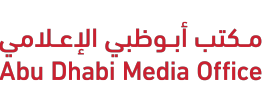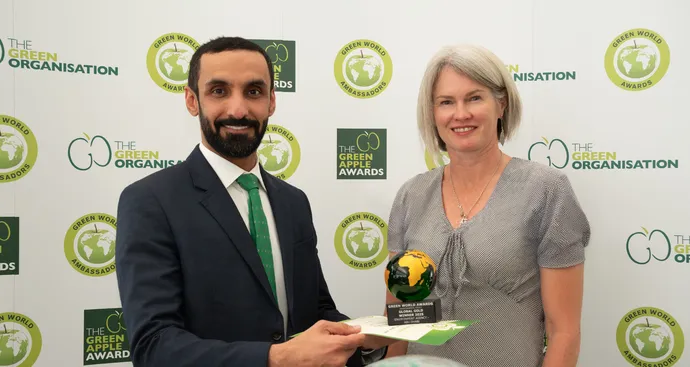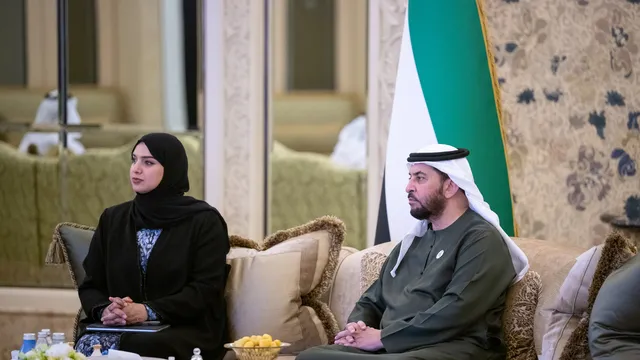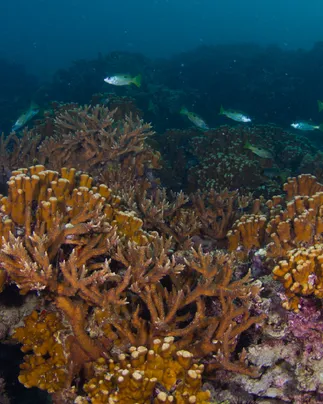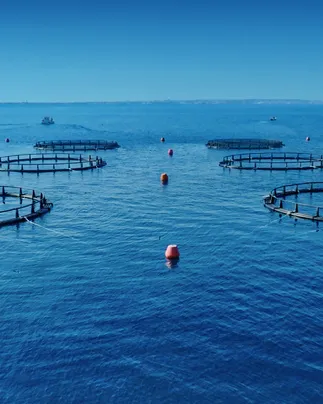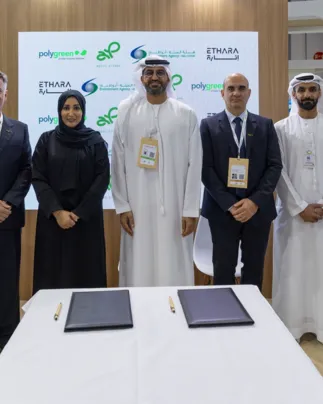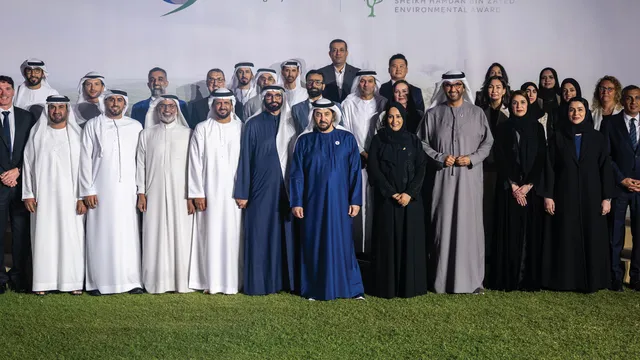The Environment Agency – Abu Dhabi (EAD) has been awarded the Gold Award in Environmental Policy at the 2025 Green World Awards, held in Auckland, New Zealand. The award recognises EAD’s Abu Dhabi Environmental Policies and Regulations Framework, which has set a benchmark for sustainable environmental governance, innovation and measurable impact.
Organised by the UK-based Green Organisation, an independent and non-profit environmental body, the Green World Awards celebrate the world’s best practices in environmental management. This year’s recognition places EAD firmly as a leader in integrating policy with action, science with strategy, and ambition with accountability.
Sheikha Al Mazrouei, Executive Director of Integrated Environment Policy and Planning sector at EAD said: “This global recognition is a reflection of the rigorous, data-driven approach we apply across every environmental policy we develop. From reducing carbon emissions to safeguarding groundwater and marine ecosystems, our framework is built on science, aligned with international standards, and designed for real-world impact. We are proud to see Abu Dhabi’s environmental policies serve as a model for effective, adaptive governance in a rapidly changing world.”
The winning entry showcased EAD’s comprehensive environmental framework, which spans critical areas including climate change, biodiversity, marine water quality, groundwater, air quality and plastic pollution.
One of the most impactful pillars of this framework is the Abu Dhabi Climate Change Strategy (2023–2027), which targets a 22 per cent reduction in carbon emissions by 2027. By the end of 2024 alone, and driven by the energy sector, Abu Dhabi was able to attain a 26 million-tonne in CO₂ equivalent emissions. The Agency also developed a Measurement, Reporting, and Verification (MRV) system, the first in the GCC region, aligned with the Paris Agreement.
Groundwater quality has resulted a significant improvement, with the index rising to 79 per cent in 2023. Additionally, annual abstraction rates have been reduced by 3 per cent, signalling a shift toward more sustainable water management.
In biodiversity conservation, EAD has issued a suite of progressive regulations including the Grazing Law, Hunting Law, Sustainable Aquaculture Policy and a Recreational Fishing Regulation, to name a few. The Agency also established the Sheikh Zayed Protected Areas Network, which now includes 20 protected areas covering 17 per cent of Abu Dhabi’s territory. Furthermore, the number of visitors of nature reserves reached 276,258 during 2024.
The Agency’s biodiversity efforts have led to fish stock recovery levels surpassing 97.4 per cent by the end of 2024, 34 per cent more than global benchmark. Abu Dhabi’s work in marine restoration was also named one of the UN’s 10 World Restoration Flagships. The Agency also launched the region’s first Plant Genetic Resources Centre and will host the IUCN World Conservation Congress in October 2025.
To safeguard Abu Dhabi’s marine environment, EAD introduced a series of targeted regulations and policies aimed at improving marine water quality. In 2020, EAD issued an executive regulation establishing clear environmental standards for ambient marine waters and sediments, covering both protected and public areas, and setting requirements for liquid discharges from land-based activities. This was followed in 2022 by the launch of a policy promoting the reuse of treated effluent and raising public awareness to protect marine ecosystems and sustain fish stocks, in alignment with the UAE’s broader environmental strategies.
These efforts have produced tangible results. Abu Dhabi’s sediment quality standards, originally developed by EAD, were formally adopted at the national level, ensuring a unified benchmark across the UAE. The Microbial Water Quality Index achieved a top score of 100 in 2024 for the second consecutive year, confirming that all ambient marine waters met international safety standards for recreation. Meanwhile, the Marine Sediment Heavy Metal Index improved significantly, rising from 84 in 2023 to 98 in 2024, reflecting lower levels of heavy metal accumulation and underscoring the effectiveness of EAD’s regulatory framework in safeguarding the marine environment.
In 2024, EAD launched a landmark Air Quality Regulation aimed at reducing pollutant emissions from both mobile and stationary sources. The regulation ensures air pollution levels remain within safe thresholds to protect human and ecological health.
The Single-Use Plastic Policy, introduced in 2020 and enforced from 2022, has led to a 95 per cent reduction in single-use plastic bag consumption. Through an innovative bottle return scheme launched in 2023, EAD has collected over 2,000 tonnes of plastic bottles.
Also, EAD drives the green agenda of the Emirate through the Abu Dhabi Environmental Centennial 2071 – a visionary 50-year framework for environmental resilience and innovation. The initiative has been granted Intellectual Property Rights by the UAE Ministry of Economy in recognition of its originality.
Together, these achievements reflect EAD’s integrated, evidence-based and future-focused approach to environmental policy. The Green World Gold Award reaffirms EAD’s role not just as a regulator, but as a global thought leader shaping the environmental narrative for decades to come.
